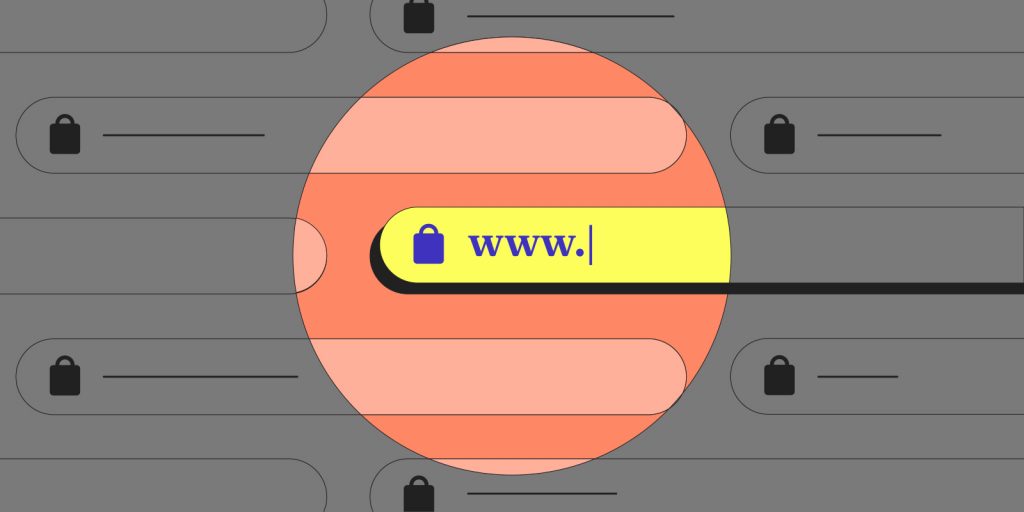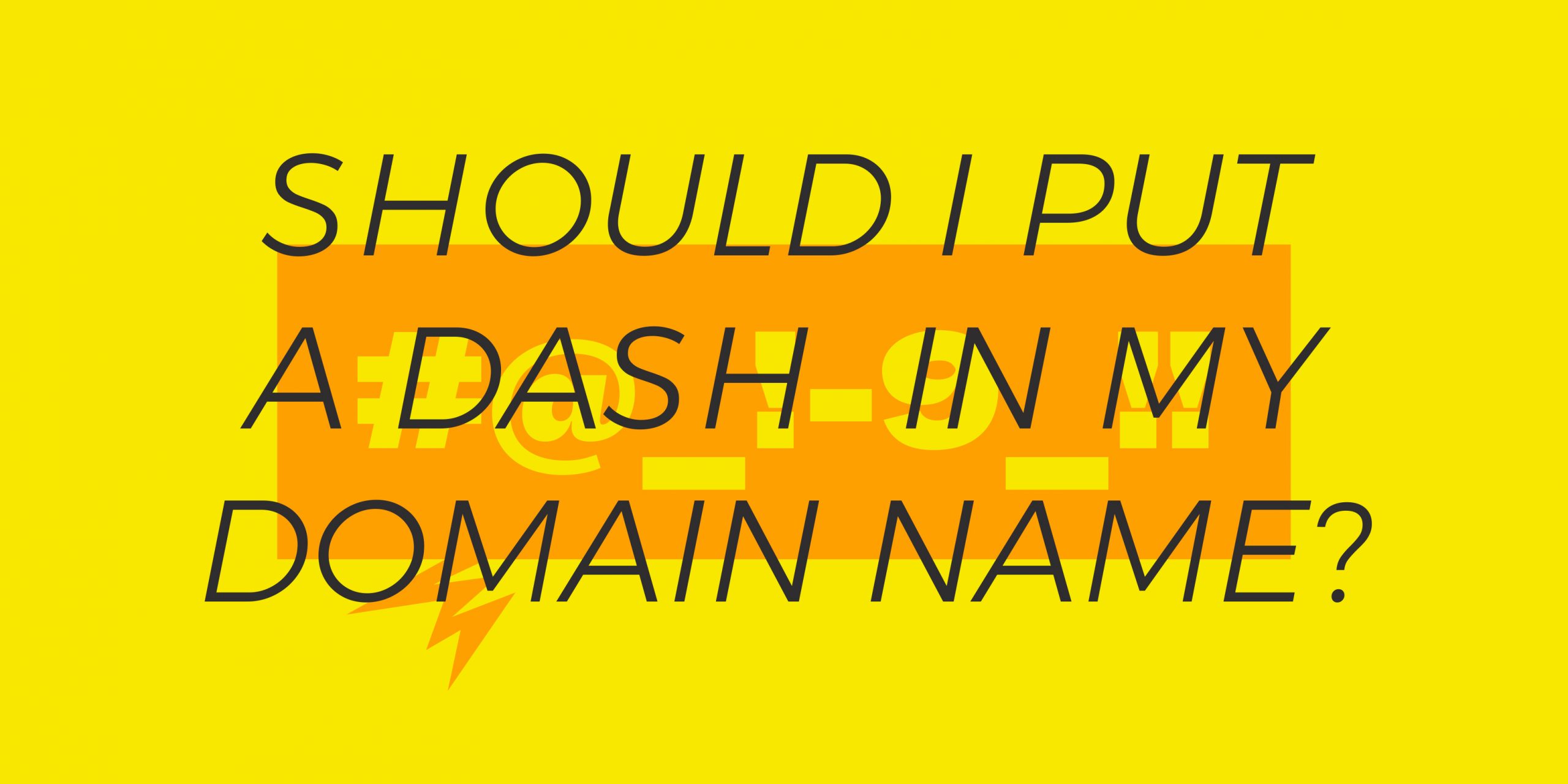A majority — 53% according to some sources — of website traffic now comes from organic search, that is, from search results in Google and other search engines ranked according to calculations using a secretive formula known as the “algorithm.” Furthermore, a whopping 93% of online experiences begin with a search engine.
That means most website traffic on the internet is highly dependent on websites’ ranking in search engine results pages. It’s no wonder, then, that businesses in the US alone are spending some $80 billion per year on search engine optimization, or SEO, to make sure they are optimally ranked in search engine results pages.
SEO strategies generally focus on using keywords in the text of webpages at a particular density, “link building” — the process of “building” links from other, relevant websites to your own, content formatting, technical improvements to website load times, and more.
One SEO strategy not to miss, though, is optimizing your website and webpages’ URLs.
Before we dive in to analyzing how to optimize your URL for SEO, we’ll just note that we’ll be referring in this article primarily to Google’s rules and ranking factors. We’re not necessarily supportive of the fact that Google has a virtual monopoly on search, but this is the case, and whatever Google does is very likely to be replicated by its competitors. When it comes to SEO, the top priority is ranking well in Google, although you shouldn’t ignore optimizing for other search engines.
What’s a URL?
If you don’t know what a URL is, it’s an abbreviation for “Uniform Resource Locator.” That’s basically a technical way of saying a web address — that is, the text that you type in to the address bar at the top of your web browser when you want to go to a particular website, or which appears there when you click a link.
Critically, a webpage’s URL also appears in search engine results, so it can be a critical part of your website’s branding, even for traffic coming from search engines.
A URL can be composed of as many as 7 parts:
- The protocol
- A subdomain
- The domain name
- The domain ending
- A path
- A query
- Parameters
- Fragment
https://www.example.tld/home?=321#example
But generally, consists of three:
- The protocol
- The domain name
- The domain ending
And often a fourth:
- A path
Read more about how a URL works
We’ll take a look at the impact of each of these four on your website’s SEO.
What impact does the protocol have on SEO?
While there certainly exist other protocols (like ftp, ftps, mailto, and file), the two main options for a website’s protocol are http and https.
What’s the difference between http and https?
The acronym “http” stands for “hypertext transfer protocol” and “https” stands for “hypertext transfer protocol secure.” Don’t worry about what the hypertext transfer protocol is technically speaking. Suffice it to say this protocol is what makes the web possible. But what you should be concerned about is the s for “secure,” in https.
When a URL begins with https, that means that that site or page is protected using a TLS or SSL certificate. By “protected,” that means two things:
- Authentication
- Encryption
The first part, authentication, means that the identity of a website you visit that uses https is verified. That means that a third-party service, in the process of creating the TLS or SSL certificate has checked to make sure the person requesting that certificate is who they say they are.
The second part, encryption, means that when data is exchanged on a website using https, that it’s encrypted using public-key encryption. This type of encryption ensures that even if the data exchanged between an end-user and your website is intercepted, that the person intercepting it will not be able to read it — only the end-user and the website will be able to unencrypt the data.
Not only does this help secure sensitive transactions like credit card purchases and account logins, it makes browsing safer and more private by preventing third parties from eavesdropping on or recording your browsing activity, to serve you ads based on your activity, for example.
When using http (with no s), you get none of these advantages.
How does https impact SEO?
In 2014, Google started using https as a ranking signal. That means that using https now contributes to your ranking on Google’s search engine results. Since that time, https adoption has expanded massively. A March 2021 study by Mozilla, the makers of the Firefox browser, found that almost 93% of all websites use https.
Internet users now know that they can trust URLs that start with https and, above all, that they shouldn’t trust URLs that start with just http.
In other words, it’s not so much the case that using https alone will help you rank higher on search engine results pages. It’s more so the case that NOT using https will impact your search engine ranking. Since it’s a ranking factor on its own, not using https will mean your site will be automatically ranked lower, and since users won’t trust your website (and so may not click on your website in search results or stay long on your website if they do), https is essential for your website to rank well.
What impact does the domain ending have on SEO?
Before we talk about the domain name you choose, let’s first talk about the domain ending as a factor for your SEO ranking.
What is a domain ending?
A domain ending, also called a top-level domain (sometimes referred to by the term “extension,” misappropriated from the unrelated “filename extension” naming convention for computer files like .mp3, .docx, .exe, etc.), is the part of a domain name or web address that trails the dot after the name itself. That is, it’s the ‘.com’ in ‘example.com’ and the ‘.net’ in ‘gandi.net.’
Originally, there were only a handful of generic domain endings and then ccTLDs, or country-code top-level domains that used country codes for domain endings.
Today, there are many TLDs, or domain endings, to choose from. There are, in fact, more than 700 options available to choose from. Some of these are also “generic” domain endings, similar to .com in their wide applicability to almost any website.
Others continue the theme of ccTLDs by offering more precise geographical options, like .nyc for New York City, or .taipei for the city of Taipei.
And still more target specific niche areas of interest or industries, like .wine, .baseball, and .travel.
Do keywords in a domain ending improve SEO?
The preponderance of new domain endings includes many that are identical to or contain keywords that you might be targeting in your SEO strategy. For example, if you are a cloud computing company, you might register a .cloud domain name. This a great move for your branding, since it will embed information about your company into your domain name itself in a clean and comprehensible way.
But will it also help you rank on the “cloud” keyword?
Unfortunately, the answer is no. Google is clear that “keywords in a TLD [i.e. domain ending] do not give any advantage or disadvantage in search.” This is bad news if you registered a domain name with one of these new domain endings hoping it would help you rank for a keyword, but it’s good news if you already have a domain name that doesn’t have a domain ending with a keyword, since it means you won’t face competition in your ranking from a “keyword” domain ending that didn’t exist when you bought your domain name.
Does the domain ending impact SEO?
Yes. Specifically, if you purchase a domain name with a country-code TLD, Google will use that to geotarget your website. That means that if your business is in the UK and you get a .uk domain name for your website, your website will rank higher on search results pages in the UK.
Similarly, if your business is based in the US and you have a branch in Canada and a branch in Mexico, in addition to your main domain name, you could also get a .ca domain name and a .mx domain name that correspond to your brand so that these rank higher in Canada and Mexico respectively than, your US website otherwise might.
(One caveat is that while this applies to country-code TLDs, it does not apply to new “geographic” TLDs, like the ones mentioned above (.taipei, .nyc, etc.), which Google considers to be “generic.”)
What impact does your domain have on SEO?
The actual domain that you choose, not including the domain ending, can also have an impact on your website’s search engine ranking.
Remember that Google (and other search engines) design their ranking algorithms to try to filter the most relevant results to a particular search to the top of the results. There are, essentially, two ways that your domain name can help you float to the top then: using keywords and branding.
Using keywords to rank higher is a baseline SEO strategy, and registering a domain name containing keywords is an extension of this strategy to your domain name. The searches this strategy targets will be those related to the products and services you offer, or your location. For example, if you’re a mechanic located in Boston, registering a domain name like bostonmechanic.tld will help you rank for the search “Boston mechanic,” which is probably what most people in Boston search for when they’re looking for a mechanic.
The other approach, branding, imagines a very different kind of search, in which people are searching Google for you specifically, because they’ve heard of your business from your marketing efforts. This is the route most startups use — picking a catchy brand name that will be memorable enough that people will search for it on Google after reading it on a billboard, hearing it in a podcast, or seeing it on a t-shirt.
In that case, you’d register a domain name like brandname.tld, and use a broader marketing strategy to build your brand. It might seem counterintuitive, but this is actually the best way to get a high search engine ranking.
One reason for this is that Google doesn’t like overly strong attempts to game their algorithm to get an advantage. In particular, you should be careful of keyword stuffing.
How does keyword stuffing hurt SEO?
Keyword stuffing in a domain name means registering a domain name composed of several keywords in the hope that your website will rank higher as a result.
In the early days of search engines, this was actually a good way to rank higher, and domain names like ‘custom-nametag-printing-near-me.tld,’ that would try to rank for specific keywords and searches in the domain name itself were common.
It wasn’t long before these types of domain names developed a reputation for hosting less-than-trustworthy websites. As a result, by some combination of intentional discouragement built into the Google algorithm and just the fact that internet users have grown wary of domain names that look like this, “stuffing” your domain name with keywords like this is not just no longer a viable way to improve your SEO, but might actually lower your page ranking.
How does a well branded domain name help SEO?
The reason a strong brand name in a domain name helps with SEO is because internet users are more likely to trust a brand name, and hence more likely to click on a link to a branded domain name, read the information on that page, and share it with others. These are all qualities that Google’s algorithm looks for when determining a webpage’s placement in their search engine results page.
This is why you can choose the best domain name for SEO the same way you would choose the best domain name in general. That is, your domain name should be:
- short
- unique
- memorable
- free of spelling or grammatical errors
The same qualities that make a domain name better for humans make it better for SEO, precisely because so much of the Google (and other search engine) algorithm depends on how people actually respond to your website. When Google tweaks their algorithm, they’re usually trying to make good rules that will rank the best results that are most likely to be what people are looking for on top.
How can you use keywords in a domain name to improve SEO?
All of this doesn’t mean that keywords and a well branded domain name are incompatible. A great example is a local business. If you’re a restaurant located in Oakland, putting “Oakland” in your domain name after your restaurant name is a great way to signal not just to search engines that you’re in Oakland, but also to other people in Oakland.
The search algorithm will recognize that your website is especially relevant for people in Oakland because of the increased traffic to your website from people searching for restaurants like yours in their area.
Likewise, if you offer some kind of common service, like if you’re an auto mechanic, including the keyword “mechanic,” in your domain name, maybe after your name or your shop’s name, can help build trust with people searching for mechanics. And since this is another area where being local can help, including the name of your city or region is not a bad idea either.
In these ways, your location or the service you offer become a part of your brand, since they’re not something that you’re trying to include to try to game the Google algorithm into ranking you higher, you’re using them to better distinguish yourself as someone offering a particular service or operating in a particular area.
How can a URL path impact SEO?
The “path” in a URL is the part after the domain name. This usually indicates the structure your website and where a particular page fits into that structure. Essentially, each path will correspond to a different page on your website.
Users will see the path along with your domain name and domain ending under the link title on the search results page.
That means that you’ll want to think of the path as just as much a part of your branding as your domain name. But unlike your domain name, where focusing on building a strong brand name for your domain name is the best strategy for SEO, keeping your keywords in mind for your URL’s path — i.e. the structure of your website — is paramount.
Ideally, your path should clearly explain the content of your page in 2–5 words, using at least one keyword, especially for paths related to content. A page’s path should also not be too complicated in terms of directories and subdirectories (i.e. slashes and more slashes).
Here are some more tips for how to create a good page path for search engines:
Keep it short
The length of the URL that a search engine will show for your page is limited, so that means you should try to keep it relatively short.
Eliminate words that are purely functional like “a,” “the,” “to,” etc. and try to keep your page’s path concise and to the point.
Keep it focused
Part of keeping your page’s path short is keeping it focused as well, specifically on the topic of the page, which should be a keyword.
If you’re selling paperclips, for example, a good path for the page where customers can buy paperclips from you would either be example.com/shop/paperclips or example.com/buy-paperclips.
If on the other hand, you’re working on an article about unique uses for paperclips, your path could be more like: example.com/unique-paperclip-uses
but you should avoid paths like:
example.com/5-ways-to-use-a-paperclip
Be descriptive
Being concise and focused doesn’t mean that you can’t also be descriptive. One way to be descriptive is if the words you’re using in your path actually correspond to your topic. This might seem basic, but the examples above would all be far superior than URLs like these:
example.com/shop/item_id=99312
example.com/blog/article_id=1791
These lack any kind of description and don’t seem to be related to any topic in particular. They are generic and might even seem spammy to some users.
Constructing an SEO-friendly URL
Due to the high volume of traffic on the internet that goes through search engines these days, you can’t afford to not think about your URL’s impact on your search engine results page rankings.
You may not have realized that a URL is composed of several parts, all of which have an impact on your website’s SEO but in distinct and different ways.
The protocol in your URL is important because https is now all but mandatory for websites to rank well in search engine results. Whether your URL has https in it, though, depends on having an SSL certificate installed on your website.
The domain ending is important because it can help you rank better in certain geographic locations. You might also find a domain name that’s better for your branding in a new domain ending as opposed to going with an old, generic one like .com. Don’t expect a keyword in a domain ending to have an impact on your ranking though.
The domain name itself is important because it can be attractive to people searching for you online. Incorporating certain keywords, like geographic location, or services offered, might help you stand out from the crowd, but this is all part of branding. A well branded domain name is the best for SEO.
Registering a domain name — both domain name and domain ending together — is where you have control over this part of your URL.
Finally, a page’s path should be short, descriptive, and incorporate a keyword. It’s important to keep URL paths focused and relevant. That will help with your website’s branding on the search results page itself and it will help users quickly identify your webpage as the one that will give them what they’re looking for.
On the flip side, overly generic URL paths are uninteresting and nondescript at best, and might actually turn away traffic from your site at worst.
You can control a page’s URL path in whatever content management system or site building tool you use.
Overall, your URL is a critical point of intervention when it comes to optimizing your search engine rankings. Choose yours wisely!
Tagged in SEOssl



